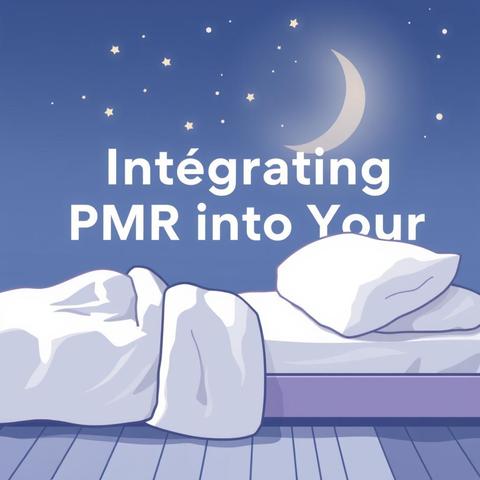Last night, I dreamt my grandmother, a woman whose laughter filled my childhood, was gone. The image was so vivid, the grief so palpable, I woke up with a gasp, my heart pounding. The sun hadn’t even begun to rise, yet the weight of the dream settled heavily on my chest. This isn’t an uncommon experience. Many of us have dreamt of the death of a loved one, a jarring and emotionally charged event that leaves us questioning its significance. If you’ve had a similar dream, you’re not alone, and this article will explore the potential meanings behind this powerful symbol. We’ll delve into the psychological, spiritual, and symbolic interpretations to help you understand your dream and process the emotions it may have stirred.
Understanding the Symbolism of Death in Dreams

Before we dissect the specific scenario of a loved one’s death, let’s address the broader symbolism of death in dreams. Contrary to popular belief, death in a dream rarely signifies literal mortality. Instead, it’s often a powerful metaphor representing transformation, endings, and new beginnings. It can signal the demise of an old habit, a relationship, a belief system, or even a part of your personality that no longer serves you. Think of it as a symbolic death, clearing the way for something new to emerge. This is why it’s crucial to explore the context and emotions within the dream itself to unlock its true meaning.
The Hidden Meanings Behind Dreaming of a Loved One’s Death
Dreaming of a loved one’s death often evokes intense feelings of sadness, fear, and guilt. However, the dream’s message rarely aligns with these initial emotional responses. Let’s explore some potential interpretations:
The End of a Chapter
The dream might symbolize the end of a significant chapter in your relationship with that person. This doesn’t necessarily mean the end of the relationship itself, but rather a shift or transition. Perhaps you’re moving to a different city, graduating from a shared stage of life, or experiencing a significant change in your dynamic. The dream could be acknowledging this transition and allowing you to process the shift in your bond.
For example, imagine dreaming of your father’s death after he has retired and is now spending less time at the family business. The dream isn’t literally predicting his death; it might represent the end of his active role in the business and the beginning of a new chapter for both of you.
Facing Unresolved Issues
The dream could be highlighting unresolved issues or conflicts you have with the deceased person. This isn’t necessarily a negative interpretation; it’s an opportunity for emotional processing and healing. Perhaps there were words left unsaid, feelings unexpressed, or forgiveness needed. The dream may be prompting you to address these unresolved issues, either through reflection, journaling, or even seeking professional guidance.
A dream about a sibling’s death, for instance, might emerge if you harbor long-standing resentment or feelings of competition. The dream serves as a wake-up call to confront these feelings and seek reconciliation.
Exploring Your Own Mortality
Dreams of a loved one dying can, at times, be a reflection of your own fears surrounding mortality and life’s finite nature. This is particularly true if you’ve recently experienced a loss or are grappling with existential questions about life and death. The dream may be prompting you to confront your own mortality, encouraging self-reflection and a greater appreciation for life.
Symbolic Representation of Change
The loved one in the dream may represent an aspect of yourself. Their death could symbolize the need to let go of certain traits, behaviors, or beliefs that are hindering your personal growth. Think of it like this: the death of a part of you to make room for a more authentic and fulfilled version.
Common Variations and Themes
The interpretation of this dream varies greatly depending on the context:
The Peaceful Death
If the death in the dream is peaceful and serene, it might suggest a positive transformation or a sense of closure. It could indicate acceptance of change and a readiness to move forward.
The Traumatic Death
A violent or traumatic death in the dream points to a more difficult transition or a more intense emotional process. This could signify unresolved conflict or trauma that needs to be addressed.
Your Emotional Response
Your emotional response in the dream is crucial. Feeling profound sadness might indicate unresolved grief, while feeling relief could signal a needed release from a difficult situation or relationship.
The Interpretation and Deeper Message of Dreams

The ultimate message of dreaming of a loved one’s death is highly personal. It’s a reflection of your subconscious mind, processing your emotions, fears, and experiences. To truly understand the dream, consider:
- Your relationship with the deceased person: What was the nature of your relationship? Were there any unresolved conflicts?
- Your current life circumstances: Are you undergoing significant life changes? Are you facing challenges or difficult decisions?
- Your emotions during and after the dream: What were you feeling? How did you wake up?
- Recurring symbols or themes: Are there other recurring symbols in your dreams that might provide further insight?
These questions can help you connect the dream to your waking life and uncover its deeper message. Is it a call for letting go, a plea for healing, or a prompt for self-reflection?
Practical Advice for Dreamers
- Keep a dream journal: Record your dreams immediately upon waking, including as many details as possible.
- Reflect on the emotions: Identify the primary emotions you experienced in the dream and in your waking life.
- Connect your dream to your waking life: Look for patterns, symbols, and connections between your dream and your current experiences.
- Practice mindfulness and meditation: These practices can enhance your self-awareness and improve your ability to process emotions.
- Seek professional guidance: If the dream is causing significant distress or anxiety, consider seeking guidance from a dream therapist or counselor.
Conclusion

Dreaming of a loved one’s death is a powerful and often unsettling experience. However, by understanding the various interpretations and symbolic meanings, you can begin to unpack the underlying message and integrate it into your waking life. This dream may signify transformation, endings, or a need to confront unresolved issues. At Dream Therapy Now, we specialize in helping individuals understand and navigate the complexities of their dreams through expert analysis, sleep science, and therapeutic practices. We can guide you on your journey to clarity, understanding, and personal growth. Let us help you unlock the hidden messages within your subconscious. Contact us today to schedule a consultation at 143 Horizon Dr, Bedford, NH 03110 or email us at info@dreamtherapynow.com. We’re here to help you navigate your dreams and improve your sleep quality, fostering a path towards better sleep and self-discovery.
Dive into our blog to discover a wealth of content that will illuminate the significance of your nocturnal adventures and guide you through the labyrinth of dream symbolism. Impeccable Dream hopes this guide was helpful! If you want to see other blog posts about Death in Dreams, here are some that may be of interest to you.